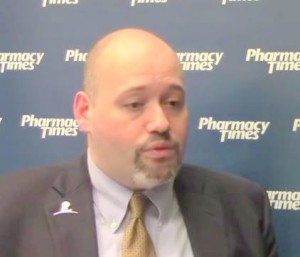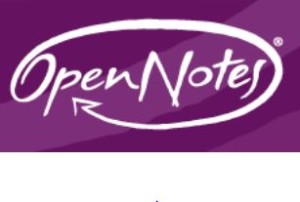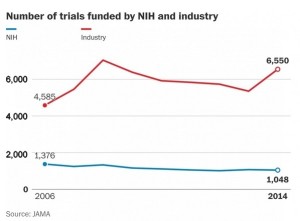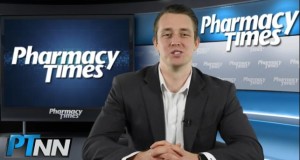- Ethical Dilemmas for Health-System Pharmacists Projected to Intensify (pharmacytimes.com)
Health-system pharmacists will inevitably face growing ethical challenges as their roles in patient care continue to evolve...ethical dilemmas embedded in health-system pharmacists’ everyday practice include competing interests, limited resources due to drug shortages, and an evolving health care delivery system that has shifted their role from dispensing medications to actively participating in direct patient care...One of the hot-button ethics issues in pharmacy currently is the trend of skyrocketing prescription costs and the lack of transparency in drug pricing decisions. Extremely high prices and lagging reimbursement may preclude health-systems from providing necessary medications to all patients who would otherwise benefit..."Patient welfare is at risk when the ethical perspective in health care is smothered by business and financial perspectives,"..."Patient well-being often hinges on the ability of health professionals to heed the ethical precepts of their calling."...Pharmacists are currently vying to gain support for an expanded role in patient care in the form of provider status, which will likely be more easily garnered if they are perceived as being on the side of patient care rather than the side of business interests.
- EHR use a ‘frustrating’ time suck, physicians tell American Medical Association (healthcareitnews.com)Providers press for delay, flexibility in EHR rule (modernhealthcare.com)
...more physician groups are making the case that stringent regulations and suboptimal technology have left physicians spending too much time grappling with their electronic health records...It's not that physicians are against health IT. In fact, most have adopted technology "at a blistering pace,"...But unrealistic and uncoordinated requirements are overburdening physicians' time and affecting the quality of patient care...AMA published a list titled "How EHRs tied up physician time in 2015."...EHR technology continues to underwhelm...Meaningful use is outliving its usefulness...Physicians are talking back -- and being heard...the Association of American Physicians and Surgeons also put out a strongly worded complaint this week, charging that EHRs could "crash" the U.S. healthcare system..."EHRs are supposed to be a cure-all for inefficiency and medical errors,"..."But the costly, clunky systems the government demands are worsening the problems and even driving some software experts back to paper."..."It's a major distraction from face-to-face patient care and interaction, thereby increasing the chance of missing important information, and in the end, increasing the probability of clinical and treatment errors,"..."The federal government should have no role in telling how physicians how to keep their records,"...
- How Practice Settings Will Be Affected by Changing Pharmacy Trends (pharmacytimes.com)
James Hoffman, PharmD, MS, FASHP, explains how pharmacy practice settings may change going forward.
- Survey: Employers taking action to cut specialty drug coverage (drugstorenews.com)
Employers are taking significant action to reduce their exposure to rising costs associated with specialty medicines...Although pharmacy represents approximately 20% of employer-sponsored medical benefits costs, it is increasing at a rate that accounts for roughly half of medical cost inflation and should be a top priority for employers...The price, utilization and delivery of specialty prescription drugs, many of which require special handling or delivery, are a top pain point for employers...employers are beginning to consider new aggressive approaches... employers have added new coverage and utilization restrictions for specialty pharmacy, such as requiring prior authorization or limiting quantities based on clinical evidence... employers plan to exclude compounds from their benefit coverage...the compounding process results in higher cost and their use may not be FDA-approved in compound form, health insurers increasingly will not cover them...
- Push Is On for Medical Records Transparency (realclearhealth.com)Foundations Unite to Support Access to Clinical Notes for 50 Million Patients Nationwide (opennotes.org)
Perched on an exam table at the doctor’s office watching the clinician type details about their medical problems into their file, what patient hasn’t wondered exactly what the doctor is writing? As many as 50 million patients may have a chance to find out in the next few years, following the announcement this week of $10 million in new grants to expand the OpenNotes project, which works with medical providers to expand patient access to clinician notes...OpenNotes started in 2010 as a research project to examine what would happen if patients had easy access to their doctor’s visit notes, which may include a summary of their conversation, the symptoms patients describe and their doctor’s findings from a physical exam. Although patients have a legal right to their medical records, getting those documents is often difficult and expensive...Our goal is basically to make fully transparent medical records the standard of care across the country...The project works with providers, patient groups and electronic health record vendors, among others, to encourage the use of OpenNotes, and evaluates the impact of OpenNotes on health outcomes and costs...In addition to improving communication between patients and their providers, some research suggests OpenNotes may improve patients’ ability to stick with their medication regimens...
- Lack of cyber security draws hackers to hospital devices (ft.com)
Imagine if simply typing “password123” into a computer did not open your email account, but an internet-connected medical device responsible for feeding you drugs or monitoring your blood oxygen or insulin levels...It may sound like the nightmare stuff of fiction, but the lack of basic cyber security on hospital equipment is attracting hackers who want to use them as a way to enter medical networks...Experts say that while they have not yet seen someone die as a result of hacking, the risks are growing...Motives for attacks could range from wanting to harvest patient information or stealing intellectual property from medical trials to simply wanting to create chaos...Devices with default passwords that are left unchanged, and outdated operating systems that are connected to the network, such as medical databases, are all too common in healthcare...Each provider needs to carefully examine for themselves what types of risk are being brought in by new devices. They will have to give careful consideration to making sure they are kept up to date, behind firewalls and in networks segmented off from key medical and personnel data…
- The testing of new drugs is on the rise. Why that worries some people. (washingtonpost.com)
As the budget for the National Institutes of Health, the nation's largest funder of biomedical research, has flatlined over the past decade, the number of clinical trials funded by the federal agency has dramatically declined, a new study has found. At the same time, the number of trials funded by the pharmaceutical industry has exploded...Meanwhile, the number of NIH-sponsored trials fell from 1,376 registered on a website in 2006 to 1,048 by 2014, according to the study, which was published in the Journal of the American Medical Association. Industry-sponsored trials grew by about 2,000 over the same period, reaching 6,550 registered in 2014...More trials is generally a good thing...because it means that more new drugs, devices or other treatments are being tested. But the decline in federally funded trials concerns public health researchers, because federally funded trials are independent, often intended to compare drugs or other treatments instead of simply to show that a product works and should gain federal approval…there are many areas of deserving research...there may need to be a formal discussion of how research dollars are spent. A reasonable way to begin...is to look at the burden of a particular disease and allotting research dollars to those that have the greatest effect on mortality and disability...
- Pharmacy Week in Review: December 18, 2015 (pharmacytimes.com)
Mike Glaicar, Business Development: Pharmacy Times...(PTNN) This weekly video program highlights the latest in pharmacy news, product news, and more. (video)
- Two serialization companies team up to tackle counterfeit pharmaceuticals (americanpharmacynews.com)Prohibition on proactive serialization for the EU FMD (securingindustry.com)
Systech International and Servicepoint recently joined forces to provide serialization and automation solutions to the pharmaceutical manufacturing industry...Internationalization, outsourcing, e-tailing and the expansion of international trade zones have created enormous complexities throughout the supply chain and product life cycle...This has resulted in a rapid escalation of global counterfeiting issues, threatening consumer safety like never before...Systech is known to have pioneered serialization and is becoming a model for the future of authentication. It unifies and protects the supply chain through...authentication and track and trace technologies that ensure regulatory compliance and reduce risks. These technologies have been used not only in the pharmaceutical industry, but also in industries, such as life science and consumer packaged goods...As part of a regulation adopted by the European Commission in October, the serialization of prescription medicine packages will be mandatory in all European Union countries by 2019. There are currently 15,000 prescription medicine production lines in Europe, and some may have to be either replaced or automated in order to put serialization into effect.
- FDA launches Web-based precision medicine platform for next-generation sequencing (healthcareitnews.com)FDA Launches precisionFDA to Harness the Power of Scientific Collaboration (blogs.fda.gov)
Food and Drug Administration...launched the beta version of precisionFDA, its new collaborative platform for the exploration of next-generation gene sequencing...First announced in August, the platform features more than 20 public and private sector participants…Next-generation sequencing enables researchers to compile a vast amount of data on a person's exact order or sequence of DNA...scientists can look for meaningful differences in DNA that can be used to suggest a person's risk of disease, possible response to treatment and assess their current state of health. Ultimately, what we learn about these differences could be used to design a treatment tailored to a specific individual...The hope is to grow this community and improve the usability of precisionFDA in the coming months and years...One way we'll achieve that is by placing the code for the precisionFDA portal on the world's largest open source software repository, GitHub, so the community can further enhance precisionFDA's features...









